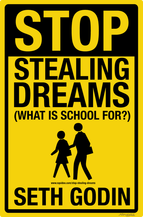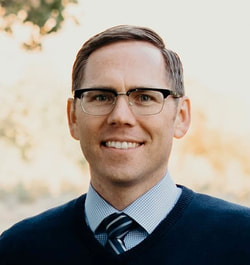|
I read this article a few months ago about Nick Sarillo’s “Trust and Track” culture which I think is a very healthy way of getting things done through other people - or delegation. This greatly impacted me and more recently I have been working on implementing many of the key points I learned in this Inc.com article in the training of new employees. For a small to midsize organization, it’s all about Culture if you want to get things done.
In order to Ship, complete tasks, without leaving coworkers and customers hanging, I firmly believe one must make a checklist. Nick’s idea is brilliant, he describes, “I built a system to replace me. I put together a checklist of things that had to be done by 4 p.m., so we could handle the volume. It took about four weeks until it could work without me. Now we’re nailing it.” Nick’s “Trust and Track” culture involves educating employees about what it takes for the company to be successful, then trusting them to act accordingly - the people you hire should want to be successful on an individual basis. People who have what it takes, when educated properly, will shake it up and make positive things happen - even when the boss is gone. The alternative is command and control, wherein success is the boss’s responsibility and employees do exactly what the boss says (or else!). I’m not saying the “Genius with a Thousand Helpers” approach doesn’t work, both approaches can work, but they produce very different cultures and long-term outcomes. If managed correctly, trust and track can allow a company to be adroit, resilient, and prolific enough to function at the highest level through booming and even contracting economies.
0 Comments
In a world of information overload, it's nice to get some visuals in with all those numbers. I despise pages upon pages of statistics and raw numbers...but put some cool graphics in there and my opinion changes as does my attention span. In this TED talk David McCandless turns complex data sets (like worldwide military spending, media buzz, Facebook status updates) into beautiful, simple diagrams that tease out unseen patterns and connections. Good design, he suggests, is the best way to navigate information glut -- and it may just change the way we see the world. Data is the new Soil.  I was invited by AliveUtah.com to write a work article about using Facebook for business. I organized this piece entitled "5 Steps to Using Facebook for Business." If you've ever wondered why customers aren't flocking to the new Facebook fan page you just set-up then read the article...it would also behoove you to use this magical tool.  I've been enjoying my free copy of Seth Godin's recent manifesto, Stop Stealing Dreams. He shares the interesting origin of multiple-choice tests in Section 10, Frederick J. Kelly and your nightmares: In 1914, a professor in Kansas invented the multiple-choice test. Yes, it’s less than a hundred years old. There was an emergency on. World War I was ramping up, hundreds of thousands of new immigrants needed to be processed and educated, and factories were hungry for workers. The government had just made two years of high school mandatory, and we needed a temporary, high-efficiency way to sort students and quickly assign them to appropriate slots. In the words of Professor Kelly, “This is a test of lower order thinking for the lower orders.” A few years later, as President of the University of Idaho, Kelly disowned the idea, pointing out that it was an appropriate method to test only a tiny portion of what is actually taught and should be abandoned. The industrialists and the mass educators revolted and he was fired. The SAT, the single most important filtering device used to measure the effect of school on each individual, is based (almost without change) on Kelly’s lower-order thinking test. Still. The reason is simple. Not because it works. No, we do it because it’s the easy and efficient way to keep the mass production of students moving forward. Memorizing information is pointless when you have a computer in your pocket with all the world's information just a touch away. Is the only thing we can teach these days is how to get a high test SAT score? I find it odd that teachers spend more time teaching youth to memorize trivial information (like "When was the war of 1812?") than they do teaching them to competently search and find it on the Internet. Oh, wait...is that because most teachers are technically illiterate? It's not their fault, I mean the administrators over at the school district won't "let" them stray from the curriculum. I often hear teachers complain about students attitudes and how flaky they are. Here's an idea, what if we taught youth to make commitments (and keep them), to overcome fear, to deal transparently, to initiate, and to plan a course? Can adults teach youth (or other adults) to desire lifelong learning, to express themselves, and to innovate? I believe it is possible. I believe it is more likely on an outdoor retreat, camp, or field trip than in a classroom via a boring power point presentation. REAL LEARNING is not done to you. Learning is something you choose to do. The world has changed and unfortunately the school system is exactly that, a industrialized "system," working on a massive scale, that has significant byproducts, including the destruction of many of the attitudes and emotions we’d like to build our culture around. In the early industrial economy of the 19th and 20th centuries the two biggest challenges were finding enough compliant workers and finding enough eager customers. School was invented to solve these problems, and it worked. The 21st century economy needs creative thinkers and problem solvers, not mindless cogs that are obedient, on-time, and work to make widgets cheaper and faster than the day before. It’s a always a helpful reminder to make a list and check it twice.
I recently read Atul Gawande's Checklist Manifesto: How to Get Things Right. I must agree with the author, tragic mistakes can be sharply reduced with just 3 things:
I happen to use the iPhone Reminder App...and I use it daily. I learned from Gawande that, “The volume and complexity of what we know has exceeded our individual ability to deliver its benefits correctly, safely, and/or reliably.” It's hard to count on people. Can you relate? A select few I know I can always count on to follow through - they are the exception, not the rule. If you want to be a leader here's some advice:
For so many years I have made To Do Lists, or simple Checklists, to keep myself on track so I don’t forget basic basic tasks that I meant to do, but for some reason just omitted. I write down No-Brainer tasks which are STUPID but CRITICAL. I’ve been criticized for listing such mundane tasks, but simply stated, “It really helps me to remember to get it right!” I can’t stand it when I don’t do something that is very easy, just because I had too much on my mind to remember to do it. The excuses are endless: “It takes too much time to make a list,” or “What’s the point? If I forget to do something, then it wasn’t worth remembering.” The truth is, checklists only take a few minutes to create and they have the potential to keep you on track for your entire workday. In addition, people (especially those who rely on you) really appreciate it when you do the things you say you will do (add your Ethos to the checklist while you’re at it). Here's a thought, if your To-Do List gets too long, consider a Not Right Now List. I figure if Pilots and Surgeons utilize checklists to get their jobs done, perhaps those of us serving in positions of leadership ought to follow suit. |
Paul Hill, Ph.D.I design, plan, and evaluate economic development programs for Utah State University. Archives
September 2022
Search this site:
|



 RSS Feed
RSS Feed
